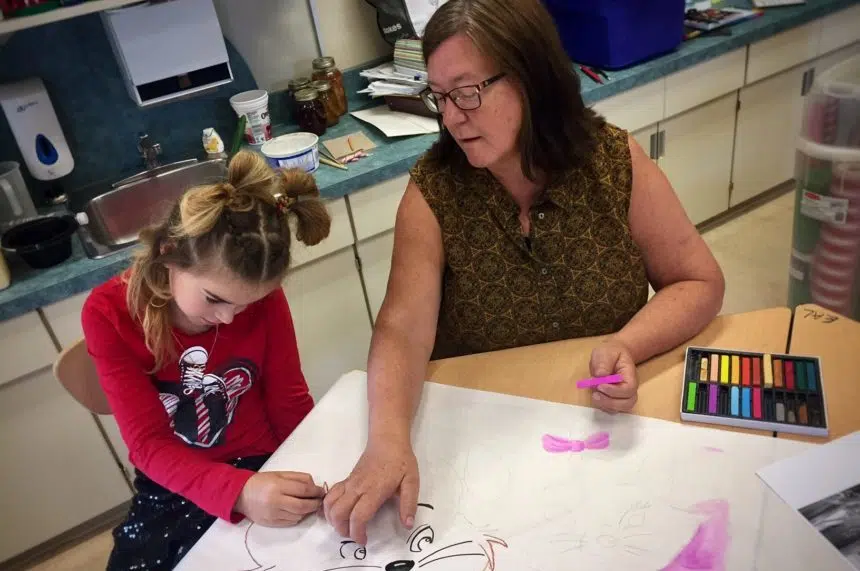Sandy Epp might only know one language, but she’s helped hundreds of students from around the world complete their education.
Epp first began teaching English as a Second Language — now called English as an Additional Language (EAL) — in Saskatoon public schools 32 years ago.
“A little more than 10 years ago, there were just two of us at the elementary level, pulling the kids into a couple of centres,” she said. “Whereas now we probably have, I’m guessing, 35 or 40 teachers at the elementary level in the schools and the students stay stationed.”
Epp has been a dedicated EAL teacher at École Dundonald School for the last six years. When she started at the school, there were around 20 children enrolled in the program, which has since seen a peak year with 65 EAL students.
“We have had quite an influx of immigrant families coming to Saskatoon,” Epp said. “When you go shopping, for example, or to the park, it’s not English that you hear a lot of the time, you hear other languages being used.”
Over the course of her career, Epp has worked with students from Vietnam, the Philippines, India, Pakistan, China, Russia, Greece, Germany and Ukraine – just to name a few.
She even started collecting country flags, but stopped around the 35 mark.
“You see a lot of progress with the kids and really see the need for learning the language, so that part makes it fun,” she said.
EAL students go about their day much like their classmates; however, there will be time set aside for one, sometimes two, sessions with Epp.
“They might be pulled out for two hours, they might even get some (educational assistant) time as well, but for the most part we make sure they’re in the class for math and science and Phys Ed and music.”
EAL teachers assess each child individually, many of whom come to Canada knowing some English and others being quite proficient in the language.
“They’ll know the alphabet, numbers, colours and even some conversational skills,” Epp said. “Some of them don’t even know how to answer, ‘What’s your name? What grade are you in?’”
While each student’s needs are different, Epp said first lessons often focus on English used in the classroom and words pertaining to specific subjects.
She noted another change over the decades is many students now start the program with basic English, with some refugees having learned the language while living in camps.
“English is being learned right across the world, more than it ever has before, so I very seldom start kids right at the beginning anymore,” Epp explained, adding that for some, the challenge is getting the pronunciation correct.
“A number of the languages don’t have the hard consonant sounds at the end. So, for some of them, they leave that ending sound off.”
While registration numbers for the 2017-18 EAL program at École Dundonald School have not yet been confirmed, administration expects a lower enrollment this year after a new school opened in nearby Hampton Village.
The school also started offering dual-stream French immersion for Kindergarten to Grade 6 in September.











